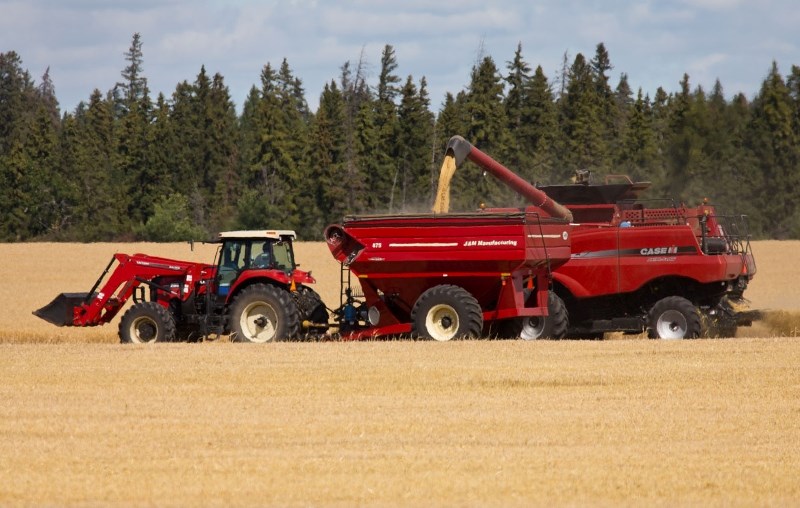Sturgeon County Mayor Tom Flynn is happy that the provincial government is stepping up to address the current state of agricultural disaster, but says more should be done to help struggling livestock producers.
The Alberta government declared a province-wide agricultural disaster on Friday, due to historically dry conditions and low precipitation levels.
The announcement allows the government-run Agriculture Financial Services Corporation to access the reserve funds it needs to pay out an anticipated $1 billion in claims to more than 80 per cent of Albertan farmers, Minister of Agriculture and Forestry Oneil Carlier said in a phone interview Tuesday.
While this is positive news said Flynn, who has heard news of some local crop yields coming in at 50 per cent, there is more the province could be doing to help livestock producers – most of whom do not insure their hay and pasture lands.
Earlier this month, Flynn expressed his concern over the blow the current drought may deal to calf to cow producers, who are still feeling the combined effects of the province’s last major drought in 2002 and the bovine spongiform encephalopathy – commonly known as mad cow disease – scare in 2003, which resulted in a major depletion in herds across the country.
Other than reducing costs to pumping water from rivers and lakes, the only relief measures geared towards livestock producers actually encourage the sale of cattle. The federal government’s tax deferral program allows farmers to carry over revenues from cattle sales to next year in order to help buy back their breeding stock.
“It takes a long time to build up that base and to rebuild the industry,” said Flynn. “That’s the main concern I have.”
Flynn is hoping the province might look into transportation subsidies to help get feed to affected livestock producers, who have been turning to social media and websites like Kijiji to purchase bales of hay for their animals.
According to Carlier, that might not be a likely solution.
“We have to careful around any kinds of transportation subsidies,” said the minister. “Saskatchewan is in a drought too. Winnipeg and Ontario are in better shape, but now you’re shipping long distances. All things we need to consider as we go through the season here.”
Carlier said the government is monitoring the beef industry closely, but expects that the historically high price of beef might mitigate the situation and allow for livestock producers to hold on to the majority of their herds.
More news is expected in a few weeks when the province gets a better picture of yield rates.




